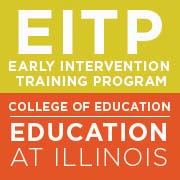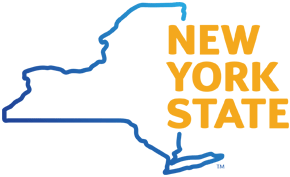The transition from early intervention to preschool marks a significant milestone in a young child's developmental journey. As children approach the age of three, they move from the individualized, family-centered services of IDEA Part C Early Intervention to a more structured classroom setting, where the focus is on educational learning as part of the IDEA part B Preschool Special Education program. This shift requires careful planning to ensure continuity of support, alignment with the child's unique needs, and a smooth adjustment for both the child and their family. The goal is to – as much as possible - create a seamless handoff, ensuring that the child’s progress in early intervention is sustained and built upon in the preschool environment.
Typically occurring ‘around a child’s 3rd birthday,’ this transition is a shift from family-centered services to educational-centered services which focuses the goals, protocols, or convenience of the service provider over family involvement or preferences.
This transitional process is one of early planning and should ideally begin at least 90 days - or even earlier – as early as 9-12 months prior to the child’s 3rd birthday, and involves collaboration between families, early intervention providers – including the child’s service coordinator, and preschool special education staff.
Learn about the transition meeting, eligibility requirements by the CPSE, the difference between an IFSP, and IEP, about least restrictive environment (LRE) as a continuum of placement, mainstreaming, and the philosophy of inclusion. Learn how LRE differs in CPSE and EI, timelines for transition, as well as the different eligibility criteria for CPSE and how a child who would easily qualify for early intervention might disqualify for CPSE preschool.
This course is chock-full of case studies to concretize your understanding of the 2 transition processes, including, parents due process rights including mediation & due process, as well as assistive technology in the preschool setting, and legal distinctions for eligibility as CPSE’s unique requirement for a disability adversely affects educational performance.
This course is tailored to the unique needs of the service coordinator or social workers with case studies for eligibility and least restrictive environment for children transitioning into preschool, with a focus on the social-emotional – areas professionally managed by social workers - repleted with case studies.
Learn about what transition is about – why it is important, how we define it, and how children have a right to it as embodied in the ‘inclusion’ defined by Federal IDEA, part C. This primer is a MUST READ for all early intervention and pre-school Service Coordinators/SW who service the professional needs of the infant, toddler, and child who will transition from IDEA part C – Early Intervention to part B (CPSE – Preschool Special Education)
Sign up now!
APPROVED BY THE ILLINOIS EARLY INTERVENTION TRAINING PROGRAM FOR EARLY INTERVENTION CREDENTIAL CREDIT for 4.0 Hours

Disclosure: Disclosure: David C Saidoff PT - course developer/presenter - has the following relevant financial relationships to disclose: he receives monetary compensation for the preparation of this course, in addition to a percentage of company sales, and has the following relevant non-financial relationships to disclose: EITTOC Board of Directors: volunteer member. Melissa Whelan, OTR - course developer/presenter - has the following relevant financial relationships to disclose: she receives monetary compensation for the preparation of this course, in addition to a percentage of company sales, and has the following relevant non-financial relationships to disclose: EITTOC Board of Directors: volunteer member. Nancy L. Beckerman, LCSW, DSW - instructor has the following relevant financial relationships to disclose: she receives monetary compensation for the preparation of this course, in addition to a percentage of company sales, and has the following relevant non-financial relationships to disclose:EITTOC Board of Directors: volunteer member. KristenO’Leary,SLP, has the following relevant financial relationships to disclose: she receives monetary compensation for the preparation of this course, in addition to a percentage of company sales, and has the following relevant non-financial relationships to disclose:EITTOC Board of Directors: volunteer member. Declaration: Approval of this course does not necessarily imply that any of the governing bodies (e.g., West Virginian Board of Physical Therapy, or other such governmental or NGO’s supports the views of the presenter or sponsor. Information provided should be used within the scope of practice. No relevant financial or non-financial relationships exists between EITTOC or the products discussed any course; no such relationship or endorsement exists for any products mentioned in any courses sponsored by EITTOC, or in any of the items (such as specific AED or Epinephrine injection product) or any testing instrument used to evaluate children; the above course is specific to said-topic, and may not be extrapolated to any other course or topic outside the scope of this course. Course instructor(s) have no other financial or non-financial remuneration - whether prior to or following course delivery; the above advertisement is made available to all physical therapy (and other) licensee on a non-discriminatory basis. Ascend has approved this course and may be contacted about any concerns. Information provided should be used within scope of practice. AOTA does not endorse specific course content, products, or clinical procedures. The onus of responsibility for this course – granted contact hours by the AOTA – is for each OT professional to check with their State board of OT to see if this course meets licensure requirement for continuing education. |






